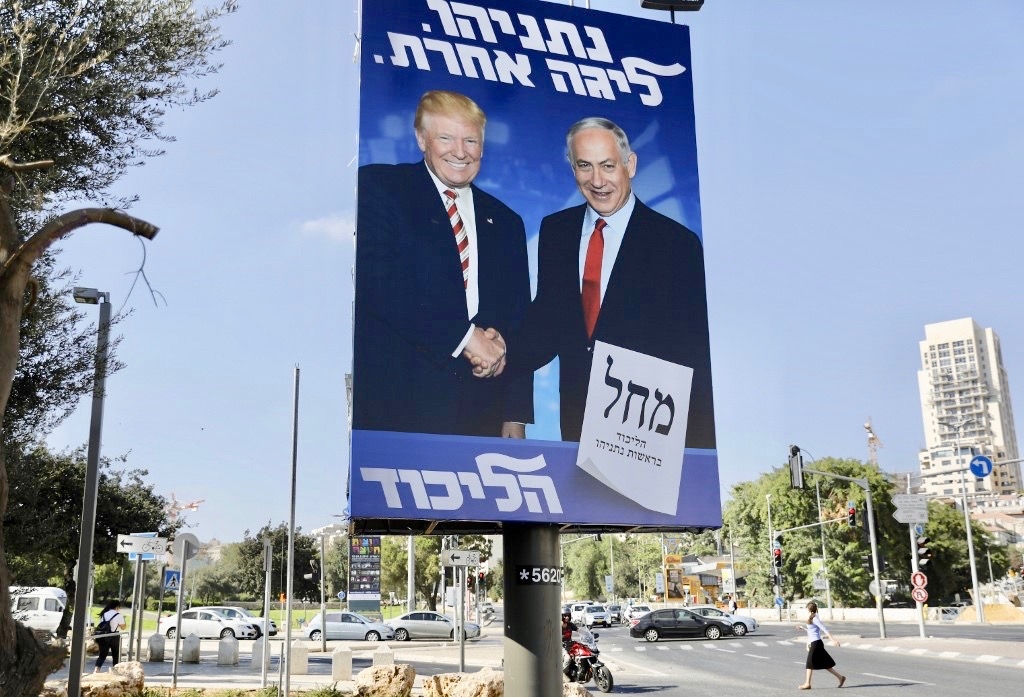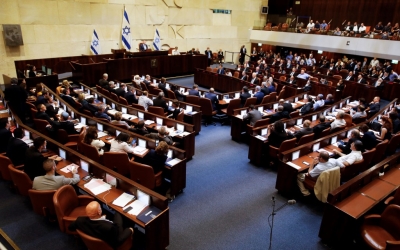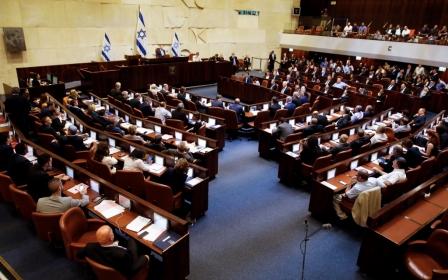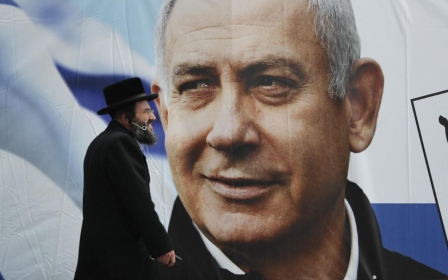Netanyahu cabinet backs cameras to monitor voters as critics cry foul

Prime Minister Benjamin Netanyahu's cabinet approved draft legislation on Sunday to have cameras monitor polling stations in Israel's election next week, a move opponents said was effectively meant to intimidate Arab voters.
Fighting for political survival after an inconclusive ballot in April, the right-wing Netanyahu has made voter fraud a key issue in his campaign for a fifth term, cautioning that victory could be stolen from him in what polls show to be a close race, Reuters said.
"The best way to prevent fraud in the elections is to station cameras in every polling place and allow poll watchers from the rival parties to supervise each other," Netanyahu said at the start of Sunday's cabinet meeting, AFP said.
In the previous election, Netanyahu's Likud party sent monitors equipped with body cameras to several polling stations with Arab constituents in what Arab politicians described as voter intimidation.
New MEE newsletter: Jerusalem Dispatch
Sign up to get the latest insights and analysis on Israel-Palestine, alongside Turkey Unpacked and other MEE newsletters
On election days in Israel, representatives of most parties sit at venues to check the pre-vote identification process. Voters are then handed an envelope and go behind a screen to cast their ballots in private.
The Likud party alleged voter fraud in Arab communities in the April polls, but Israel's Haaretz newspaper reported on Sunday that investigations have so far turned up none.
Netanyahu said that under the legislation, which must go to parliament for approval before the 17 September election, monitors would be able to use their cellphone cameras to record outside of the actual voting booth.
The parliament, or Knesset, said in a statement that a special session was planned for Monday on the issue.
"Everyone films," Netanyahu said in public remarks at the meeting. "Any shop is filmed by cameras, so the polling stations are the only places where you can't film?"
In his comments to the cabinet, which government officials said approved the legislation unanimously, Netanyahu pledged: "The secrecy of the vote will be strictly preserved."
Ayman Odeh, head of the Arab Joint List party, said on Twitter that Netanyahu's focus on the issue of voter fraud was aimed at "triggering a panic vote" by his supporters on the right and "suppressing the Arab vote".
Netanyahu “is preparing the ground for the day he declares, 'Arabs have stolen the elections', and contests the results if he loses," Odeh said.
Yair Lapid, co-leader of the centrist Blue and White Party, which is running neck-and-neck with Likud in polls, alluded to the impact the deployment of cameras might have on Arab voter turnout, describing the bill as "racist" in comments on Twitter.
Arabs make up 21 percent of Israel's population and generally vote not for Likud but for their own Arab parties or centrist or left-wing Jewish parties.
The proposed bill was opposed by the head of the Central Election Commission that oversees the vote, who said the last-minute introduction of cameras might "lead to chaos".
Attorney General Avichai Mandelblit has reportedly told ministers he was not against such legislation in theory but said it would need to be explored in depth and not rushed through days before the vote.
The current law does not permit it, he said.
Most western democracies have restrictions on the use of cameras at ballot stations.
Two weeks after the election, Mandelblit will hold a pre-trial hearing in which Netanyahu can argue against the attorney general's announced intent to indict him in three corruption cases. Netanyahu, in office for the past 10 years, has denied any wrongdoing.
Middle East Eye delivers independent and unrivalled coverage and analysis of the Middle East, North Africa and beyond. To learn more about republishing this content and the associated fees, please fill out this form. More about MEE can be found here.





